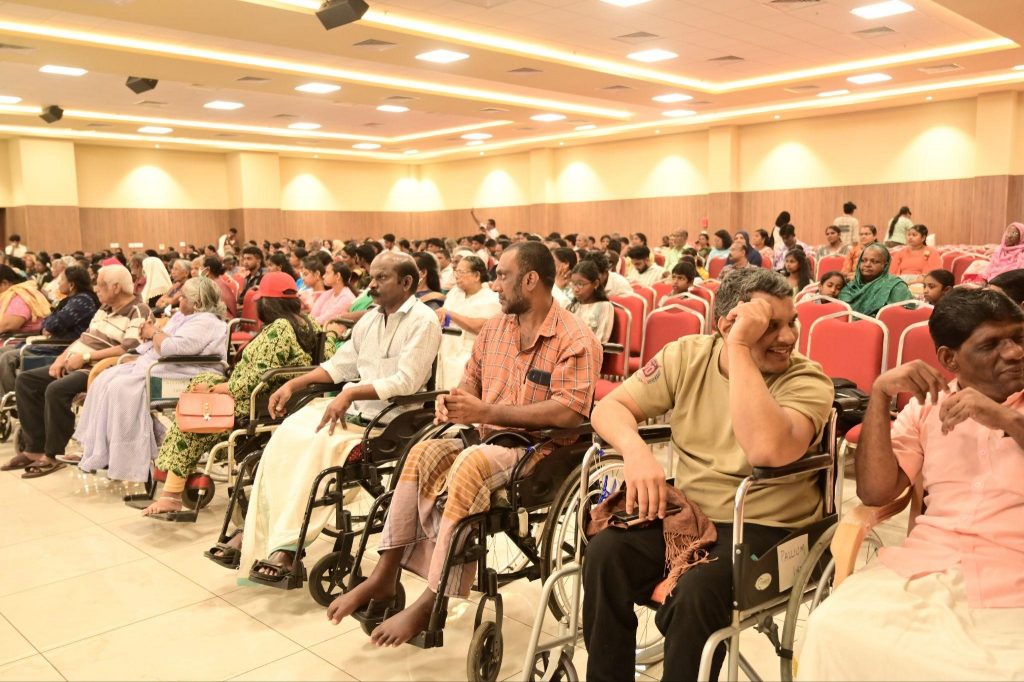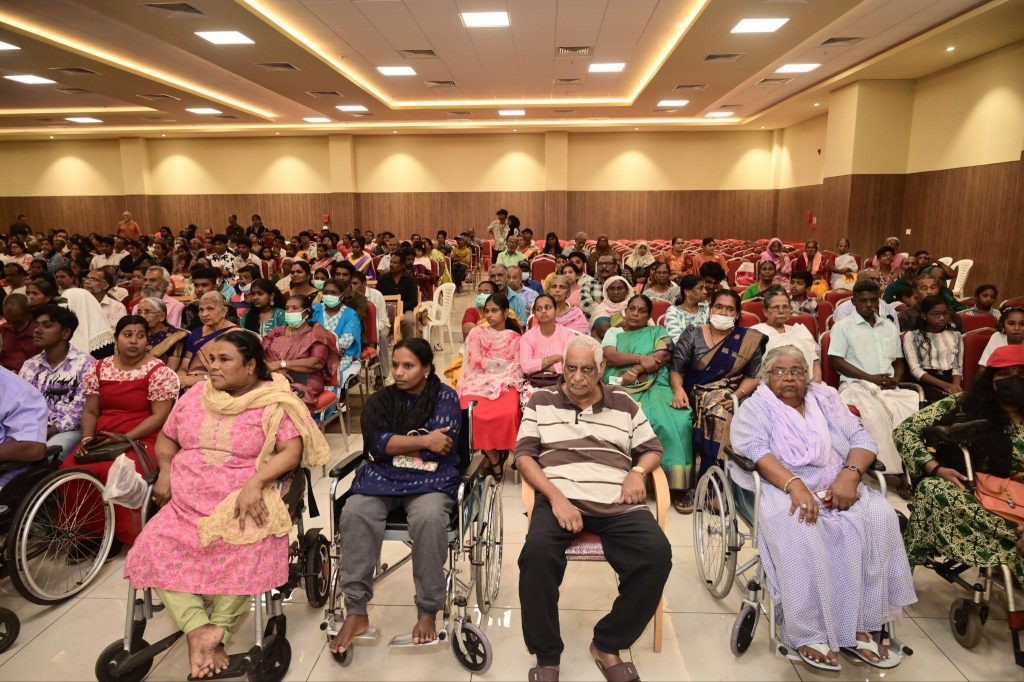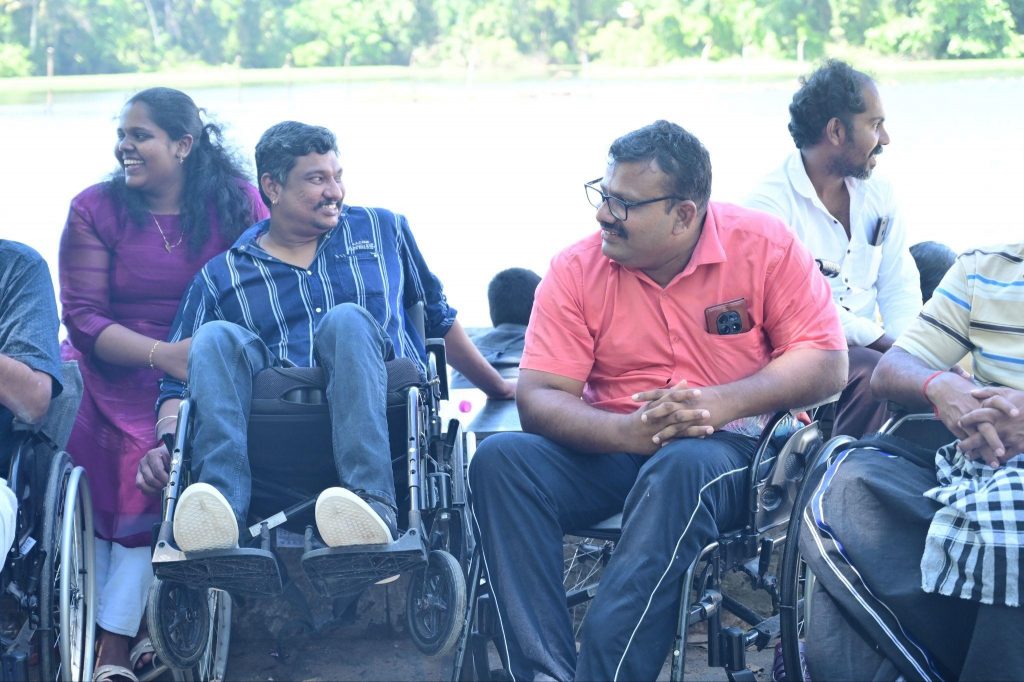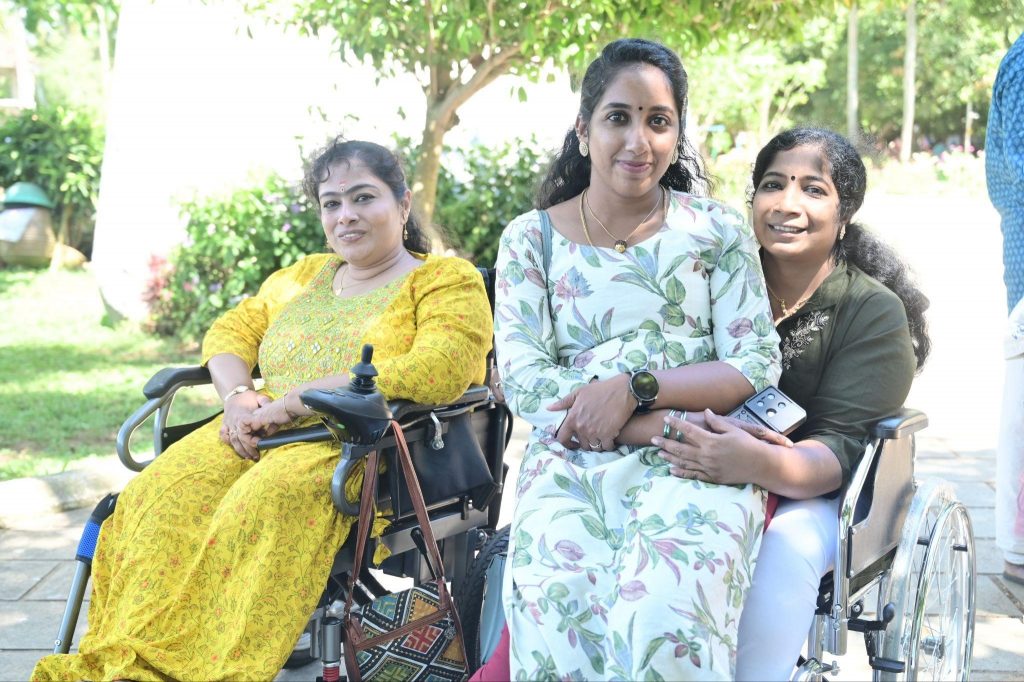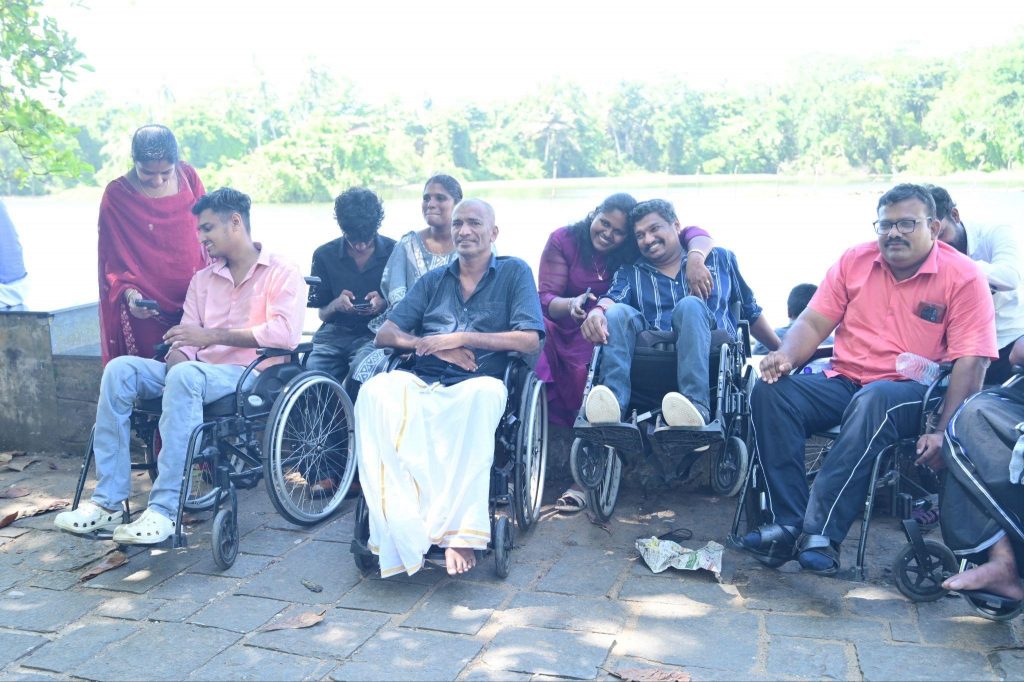A Day When Pain Took a Backseat
Stories from World Hospice and Palliative Care Day 2025
By the time the first auto ferrying a patient and their caregiver pulls up at the International Convention Centre at Veli Tourist Village, the sun is already high — and so is the pulse of the Pallium India team. They have all been praying for a respite from the unexpected rains that could spell chaos for the events planned to celebrate World Hospice and Palliative Care Day. But as luck — and perhaps faith — would have it, the morning dawns bright and clear. A collective sigh of relief passes through the team.
The patients, their caregivers, and families have travelled from across Thiruvananthapuram — some from Kanyakumari and a few others from different parts of Kerala. For many, it’s a long and difficult journey, made harder by illness and physical limitations. Yet, they come — driven by hope, connection, and the promise of a day that celebrates life beyond suffering. The Pallium India team understands the weight of that trust. Every arrival is more than just a registration; it’s a quiet reminder of the responsibility they carry — to care, to comfort, and to make every moment of the day safe and joyful for those who have placed their faith in them.
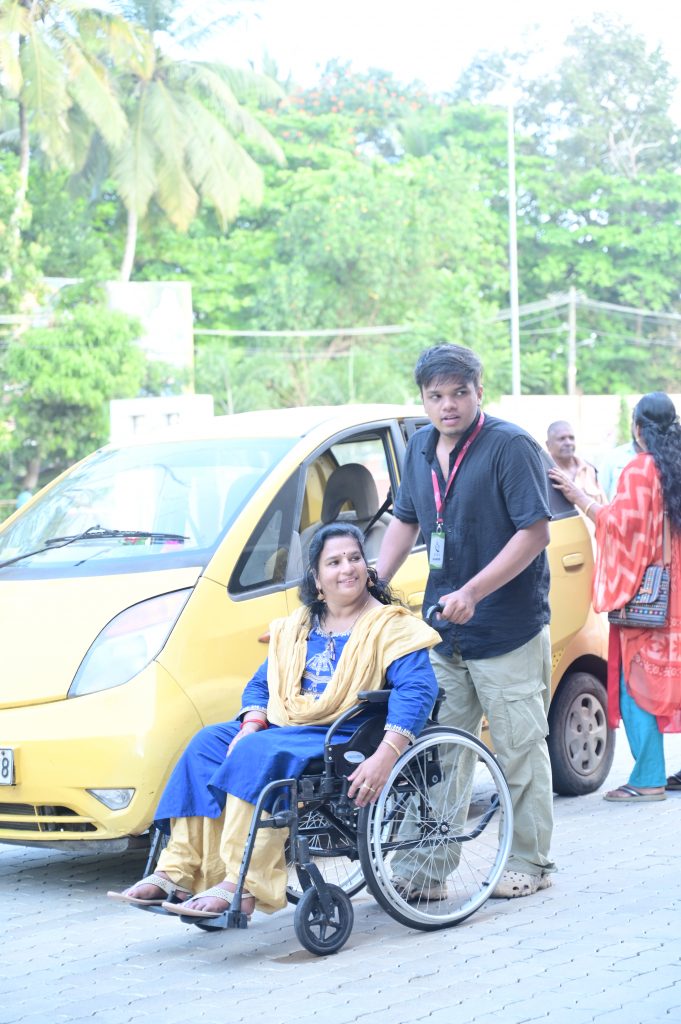
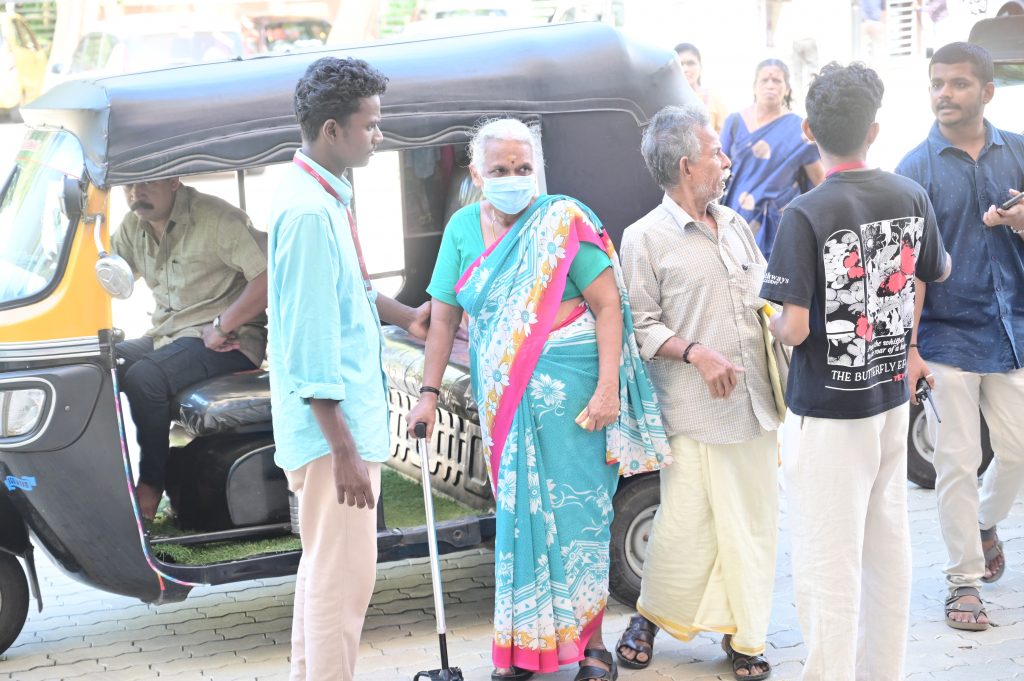
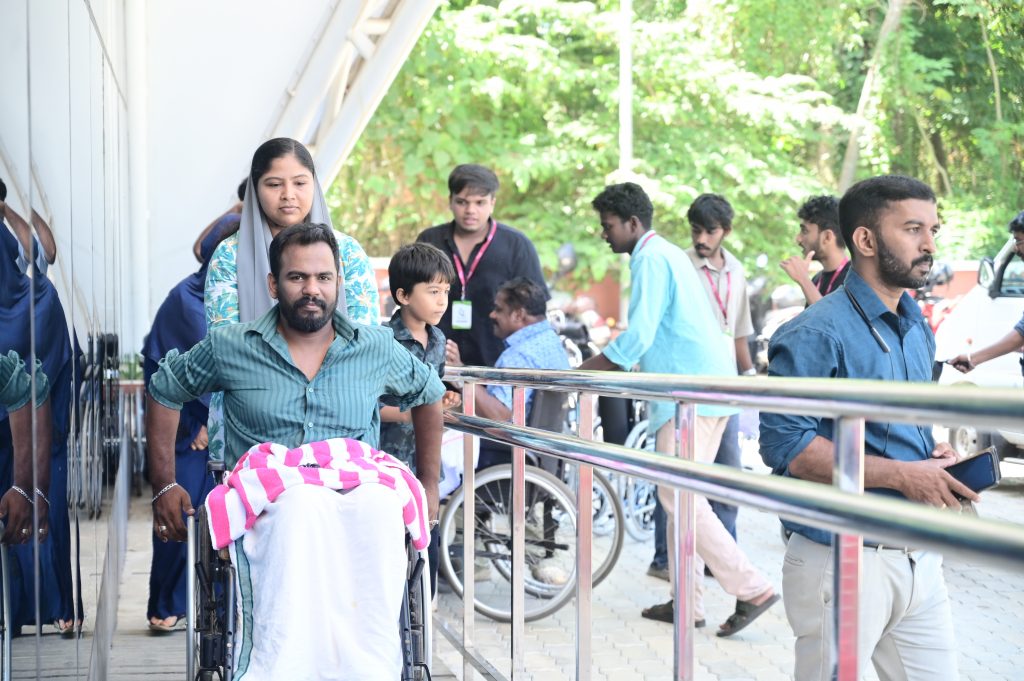
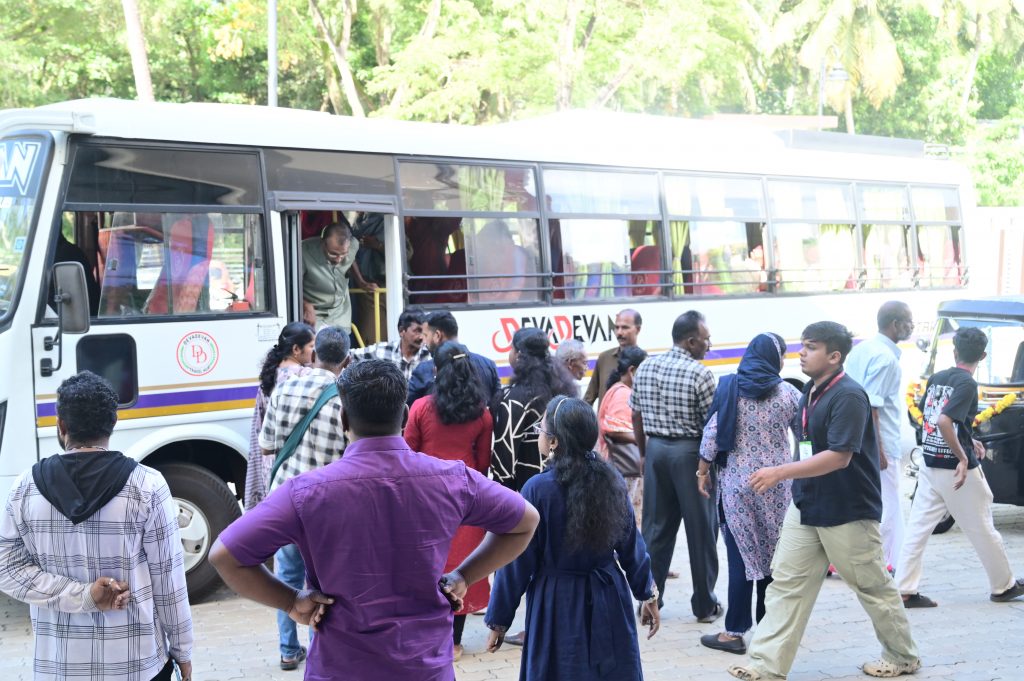
For Dr. Greeshma, this year’s World Hospice and Palliative Care Day celebration was a test of nerves, teamwork, and quiet leadership. In her five years at Pallium India, she had been part of many programs — but never at the helm of one this large. When she first joined the core committee, she assumed she would simply follow instructions from other veterans, who have planned and executed several such events. But soon, the magnitude of the event began to unfold. The team had reached out to 4000 patients, and every few days, the list of confirmed attendees kept growing. Last year’s event had around 700 guests — this year, it was going to double. The planning was relentless: schedules, volunteer briefings, logistics, and contingency plans for every possible scenario. Most evenings stretched past 8 PM as the team stayed back, fine-tuning every detail.
By the end of it all, what stayed with her wasn’t the exhaustion, but the memory of how seamlessly the team came together — each person knowing exactly what to do, when to step in, and how to care. Amidst the bustle, there was a quiet rhythm — of precision, and purpose — that made it all work.
Gokul K Gopikrishna, Shijo Kurian Thomas, and team have been on their feet since early morning — moving from one committee to another, checking lists, ticking boxes, and solving the hundred small problems that appear out of nowhere. After two weeks of nonstop preparation, the adrenaline is all that’s keeping them going — that, and in Gokul’s case, the medication that keeps his fibromyalgia in check. He knows he’ll collapse in exhaustion later, but that can wait.
Right now, 398 patients and 813 caregivers are arriving, and they must make sure everything runs like clockwork. The registration desks are buzzing; names have to be checked against the master Google Sheet. The stage team needs to reconfirm their final list of performers, the food committee has to serve breakfast on time, and the student volunteers must attend to guests — many of them in wheelchairs, some with catheters, and all carrying stories of courage and pain. It’s not just an event. It’s a celebration of resilience.
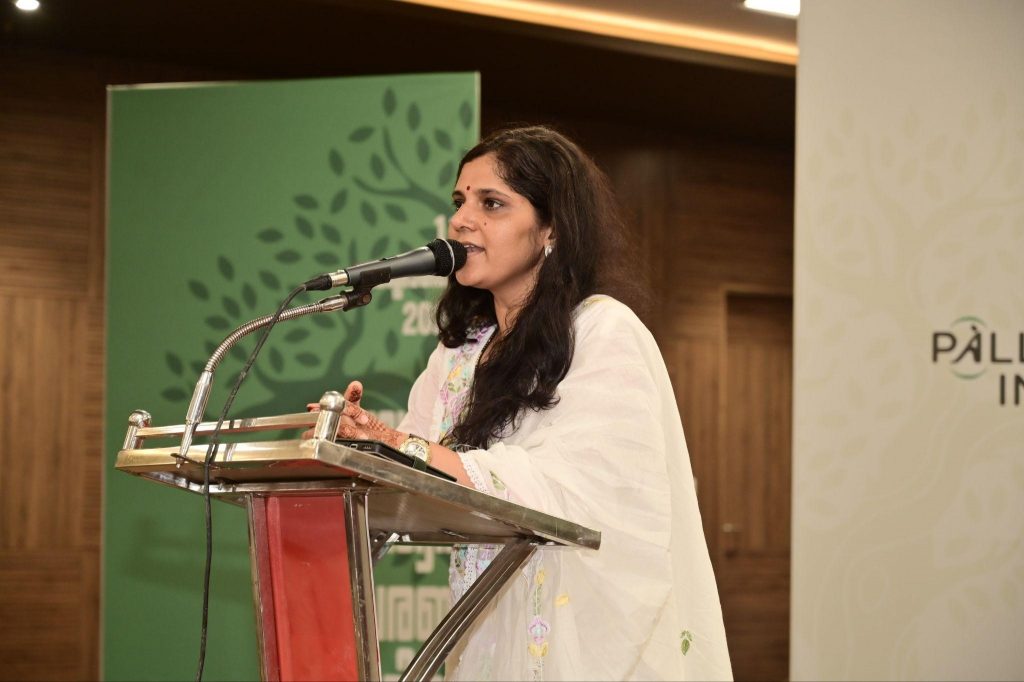
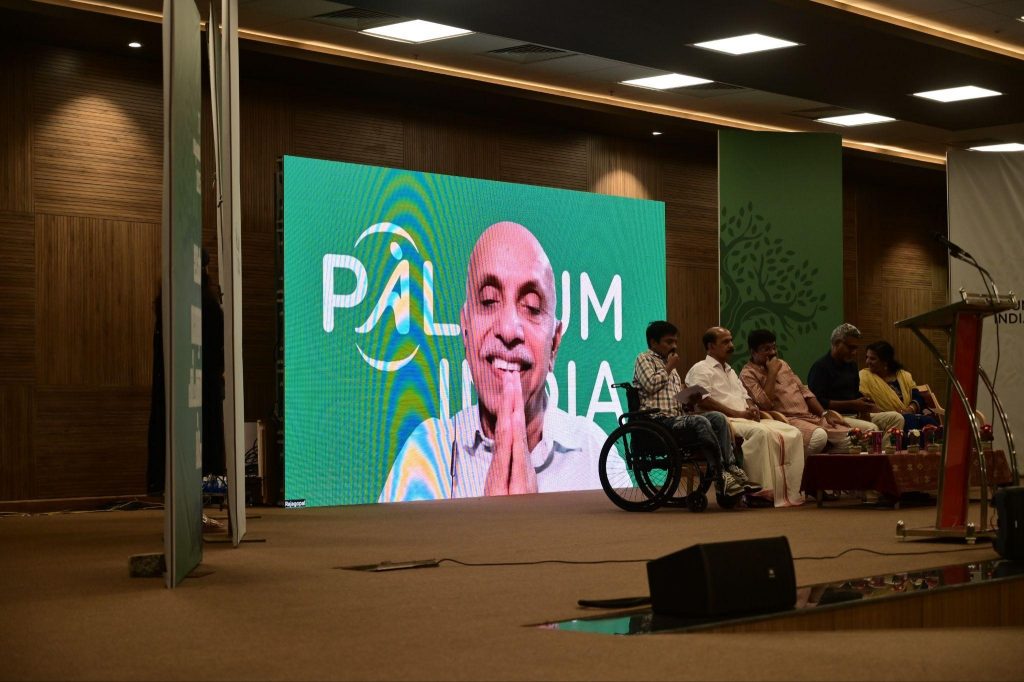
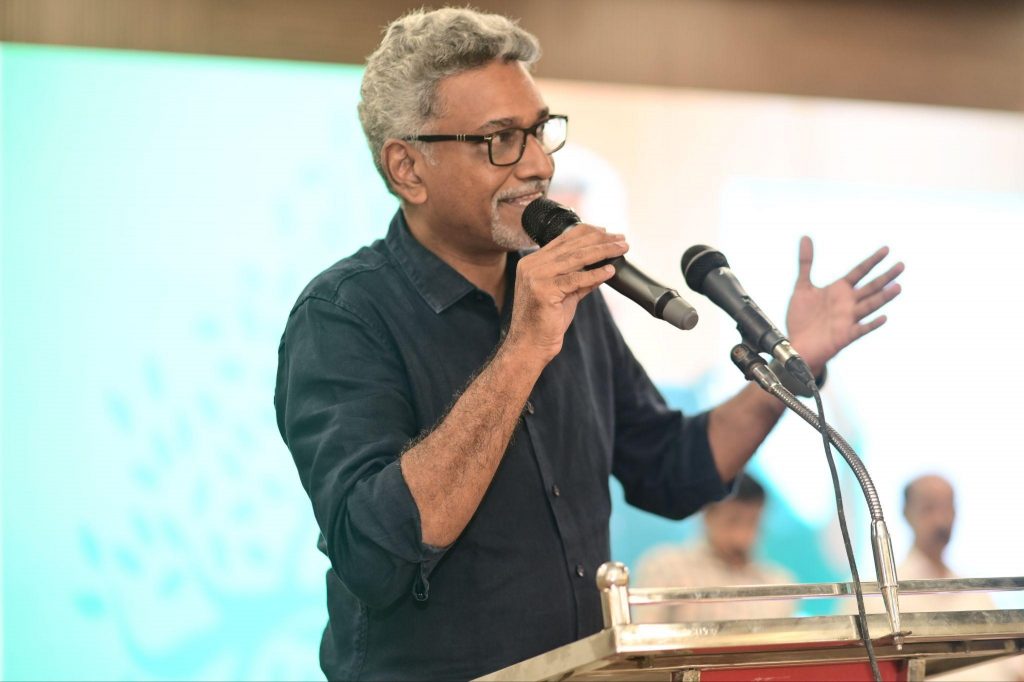
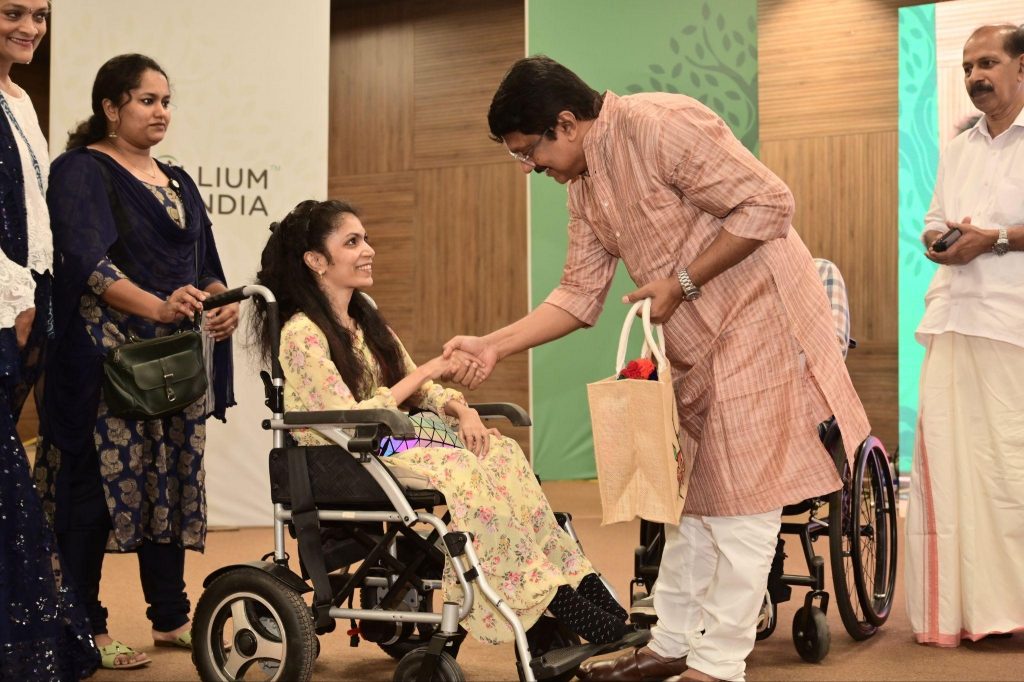
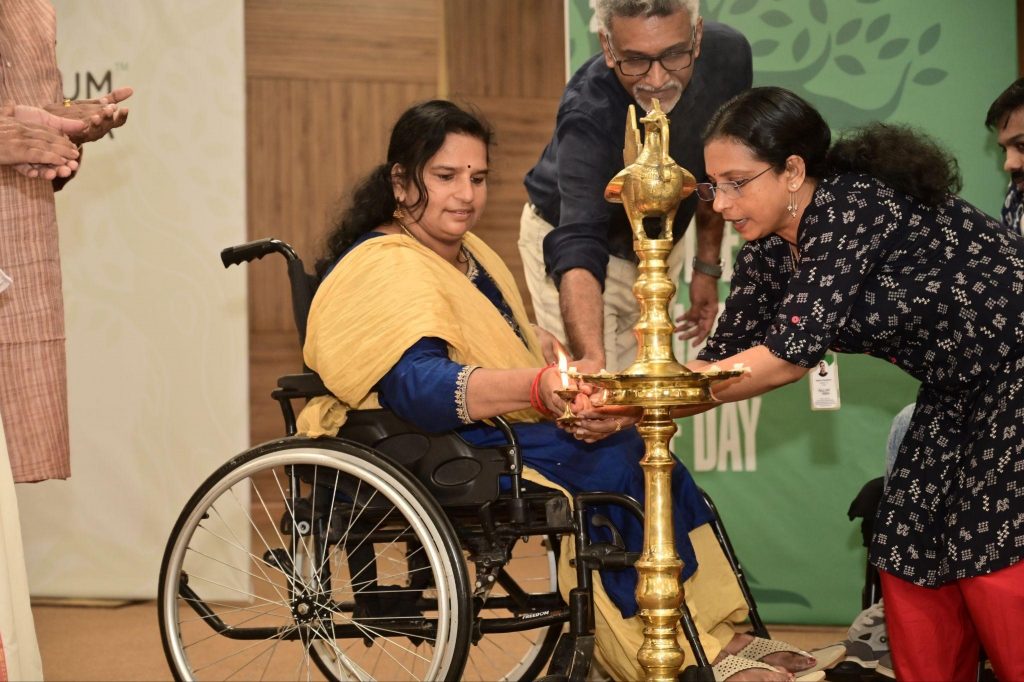
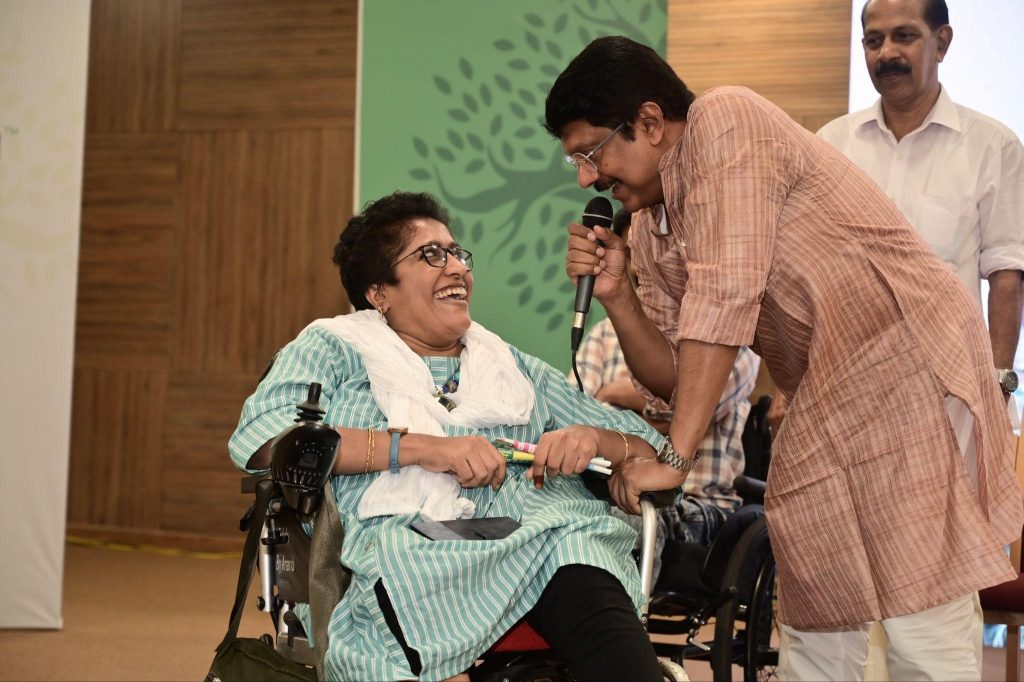
Vishnu Mohan might as well have slept at the venue. After leaving for his home that’s over 50-odd kms from the venue at 9 pm the previous night, he’s back before 7 am. As part of the stage, program, and media coordination team, he’s been overseeing the stage setup, checking that the videos play correctly on the massive LED screen, and managing photographers and videographers. Then, just when the programs begin and everything seems perfect, the sound system sputters and dies. Vishnu groans inwardly. Of course. It wouldn’t be a real event without a technical glitch. But a frantic couple of hours, some rewiring, and a lot of patience later, the music swells through the hall once again. He smiles. Crisis averted. For now.
Meanwhile, Dr. Sreedevi Warrier, Head of Education and Team Building, finds herself on an unusual assignment — ‘juice duty’. With a team of student volunteers, she’s ensuring that guests stay refreshed. Along the way, familiar faces stop her — old patients, caregivers, people who remember her from her earlier days. Smiles and stories are exchanged. Her two children, volunteering alongside her, watch in quiet wonder as people recall how their mother once carried them as toddlers while tending to a loved one in pain. And that’s when a call comes through – a patient is feeling nauseous, and the first aid team is tied up elsewhere. She hasn’t been on active clinical duty in years, but instinct takes over.
By the time Dr. Sreedevi gets into one of the two rooms that have been turned into a makeshift ward, it’s already full. She has no other choice but to request patients to share the beds — almost like a government medical college ward playing musical chairs (or beds, in this case). By the end of the day, luckily, there are no major health concerns with any of the patients, but what stays with her is the eagerness each of them shows just to be there. Some of the patients on the beds are already looking forward to the excursion around Veli Tourist Village planned for later in the day, even the parents of pediatric palliative care patients. Perhaps because this is one rare day they get to go out and connect with others who truly understand their struggles.
And that’s exactly how it is for Gracy Justin – the day has brought warmth and togetherness. She is a mother from Rithu, Pallium India’s Parent Support Group for families of children in pediatric palliative care. Like many other parents facing the same challenges, life has become limited to four walls, and pain and isolation have become constant companions. For families like Gracy’s, even stepping out together is rare. “We usually can’t go to public spaces,” she explains. “Sometimes it feels like our children are forbidden from joy. But at this celebration, we belong.”
Anunandh C, a Student Initiative in Palliative Care volunteer from ACE College of Engineering, has spent the day assisting elderly patients in wheelchairs. As he carefully wheels them through the park, he senses the quiet loneliness that seems to shadow many of their lives. Yet, what strikes him most is their warmth — the way their faces light up with gratitude and affection for even the smallest gestures of care. By the end of the day, Anunandh and his friends feel they have gained more than just experience; they have found grandparents’ stories, blessings, and memories that will stay with them long after the day ends.
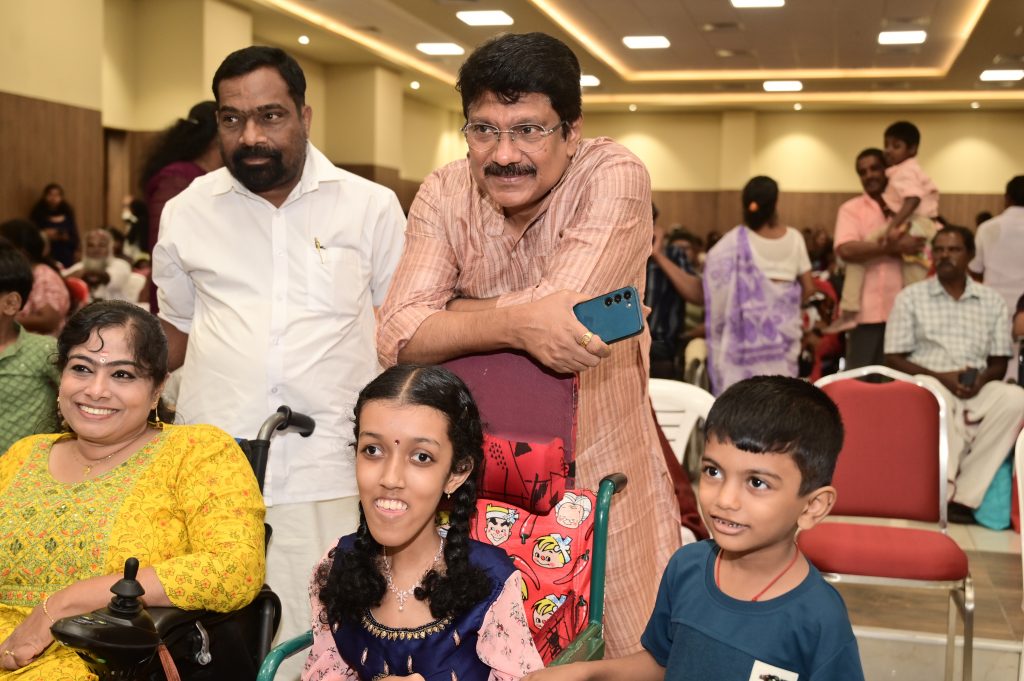
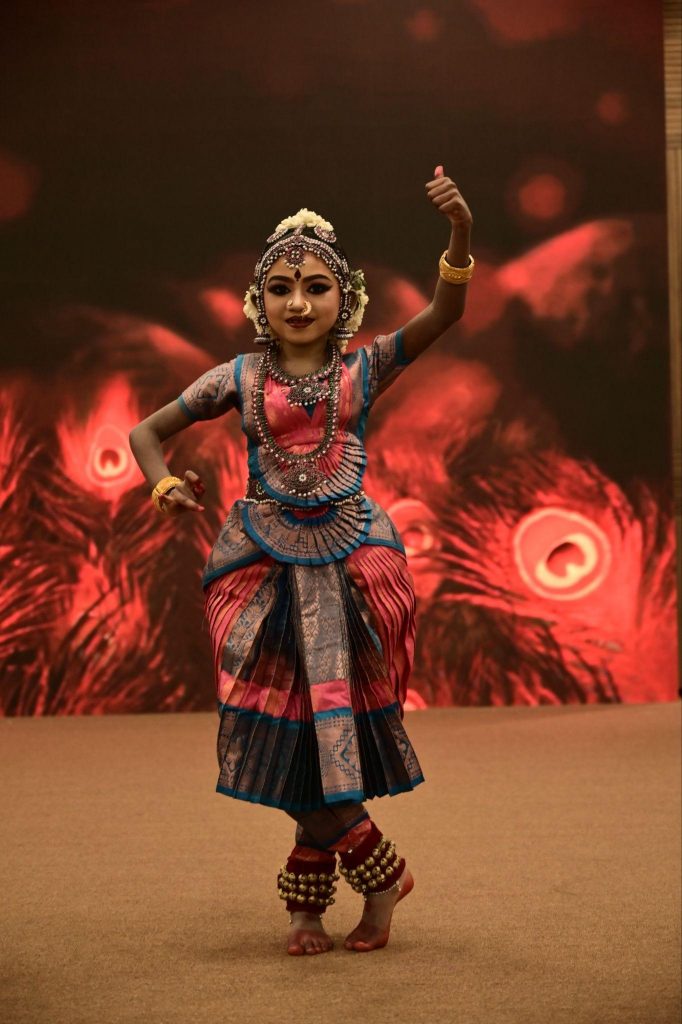
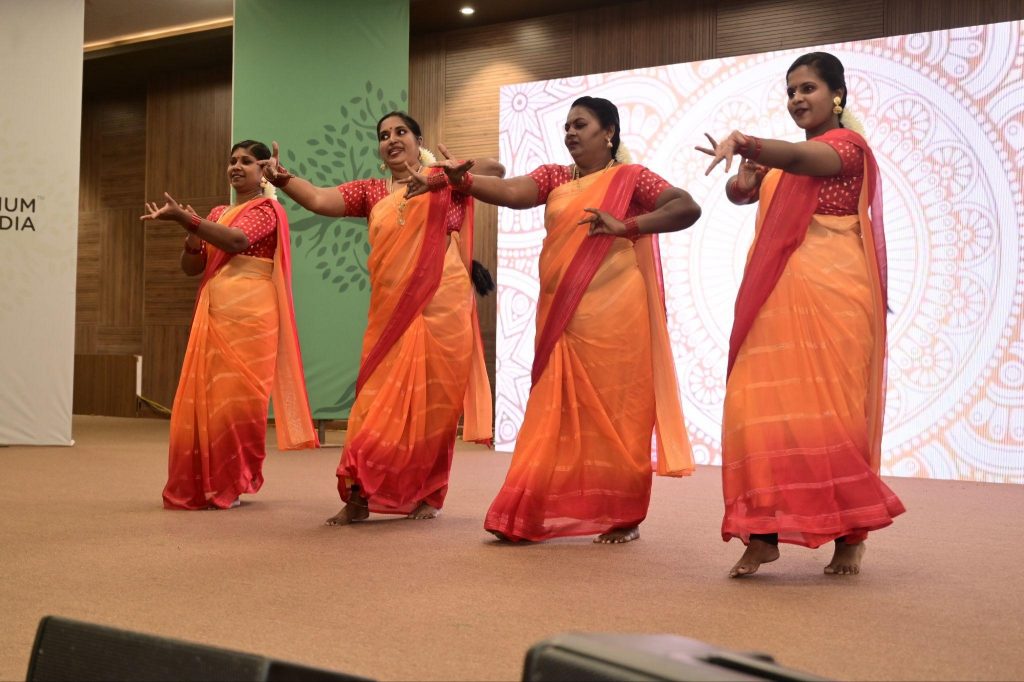
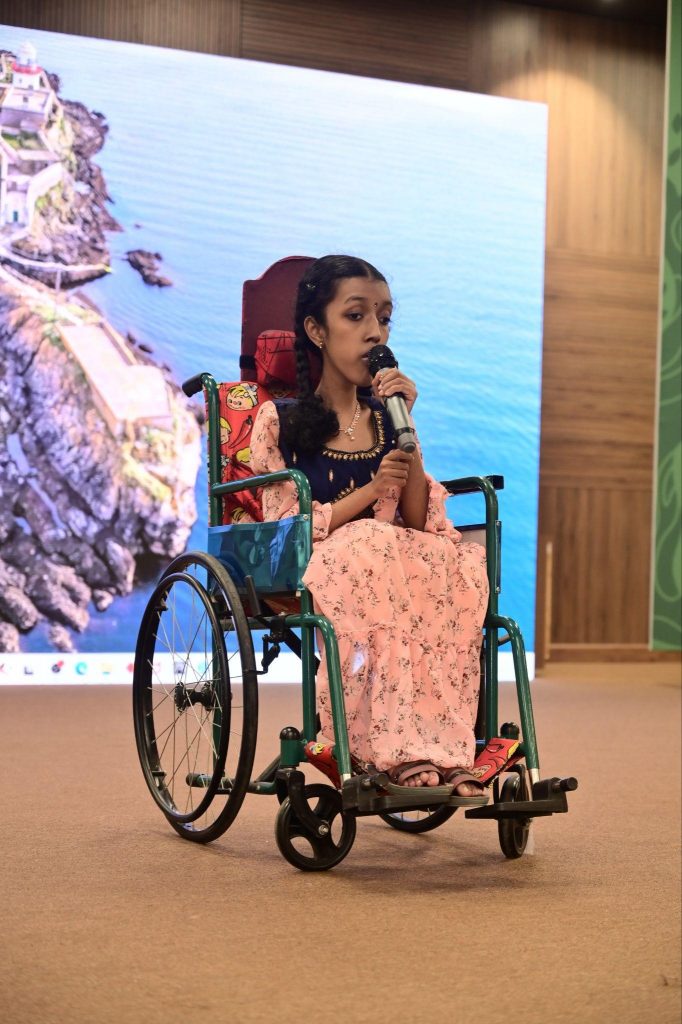
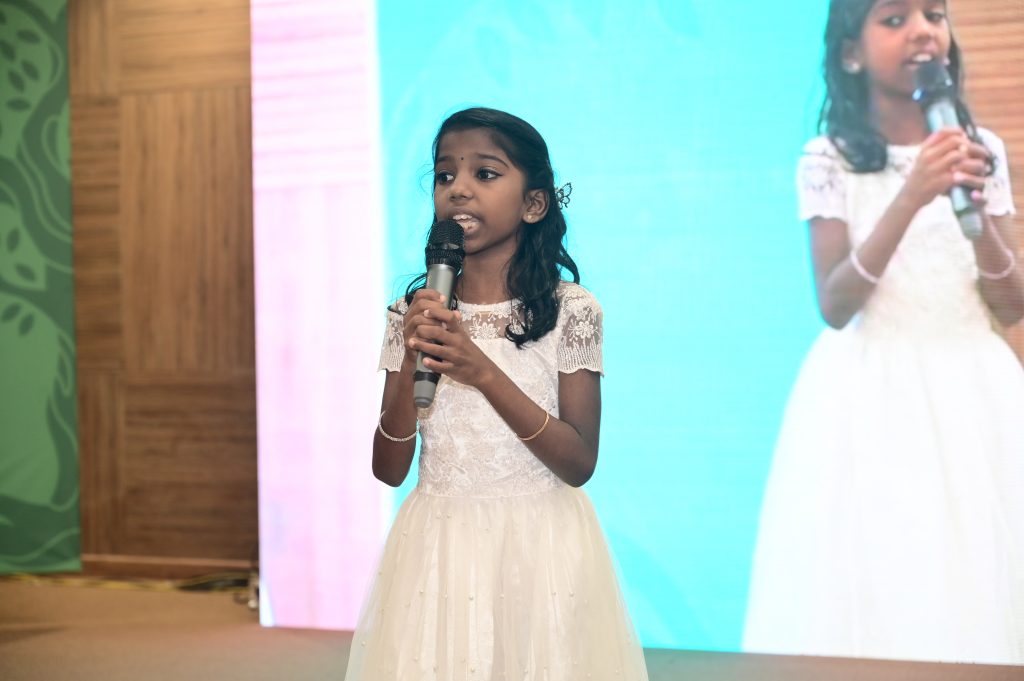
As the programs unfold, laughter and applause fill the air. The patients — today’s true guests of honour — take the stage, dance, sing, and celebrate life with an energy that humbles everyone watching. Most of them are delighted to have dignitaries like G. Venugopal, a famous playback singer, and Ms. Anu Kumari IAS, District Collector, amongst them, taking selfies and photos. They have only ever seen them on television, and to listen to Venugopal indulgently accept every song request and sing for them has made their day.
The World Hospice and Palliative Care Day 2025 celebrations have been nothing short of remarkable — a coming together of over 1500 patients, caregivers, families, volunteers, and staff under one roof. It’s the largest gathering Pallium India has ever hosted, a day filled with music, laughter, and moments of deep connection. Of course, there are lessons to carry forward. As Chairman Binod Hariharan observed with a smile, perhaps next year they’ll need to rent a stadium — a space large enough to hold not just the growing crowd, but the growing spirit of compassion that defines these gatherings. A venue with single-level access and multiple entry points could make things easier for patients and caregivers, and better arrangements could streamline food service for everyone present. But those are plans for the future. Today belongs to the people who made this possible — the hundreds of unseen hands behind the scenes. The staff checking sound levels, the caregivers steadying wheelchairs, the doctors watching over patients, the volunteers serving food and drinks with warm smiles. Together, they turned a complex logistical challenge into a celebration of life, love, and care — the true spirit of palliative care in action.
